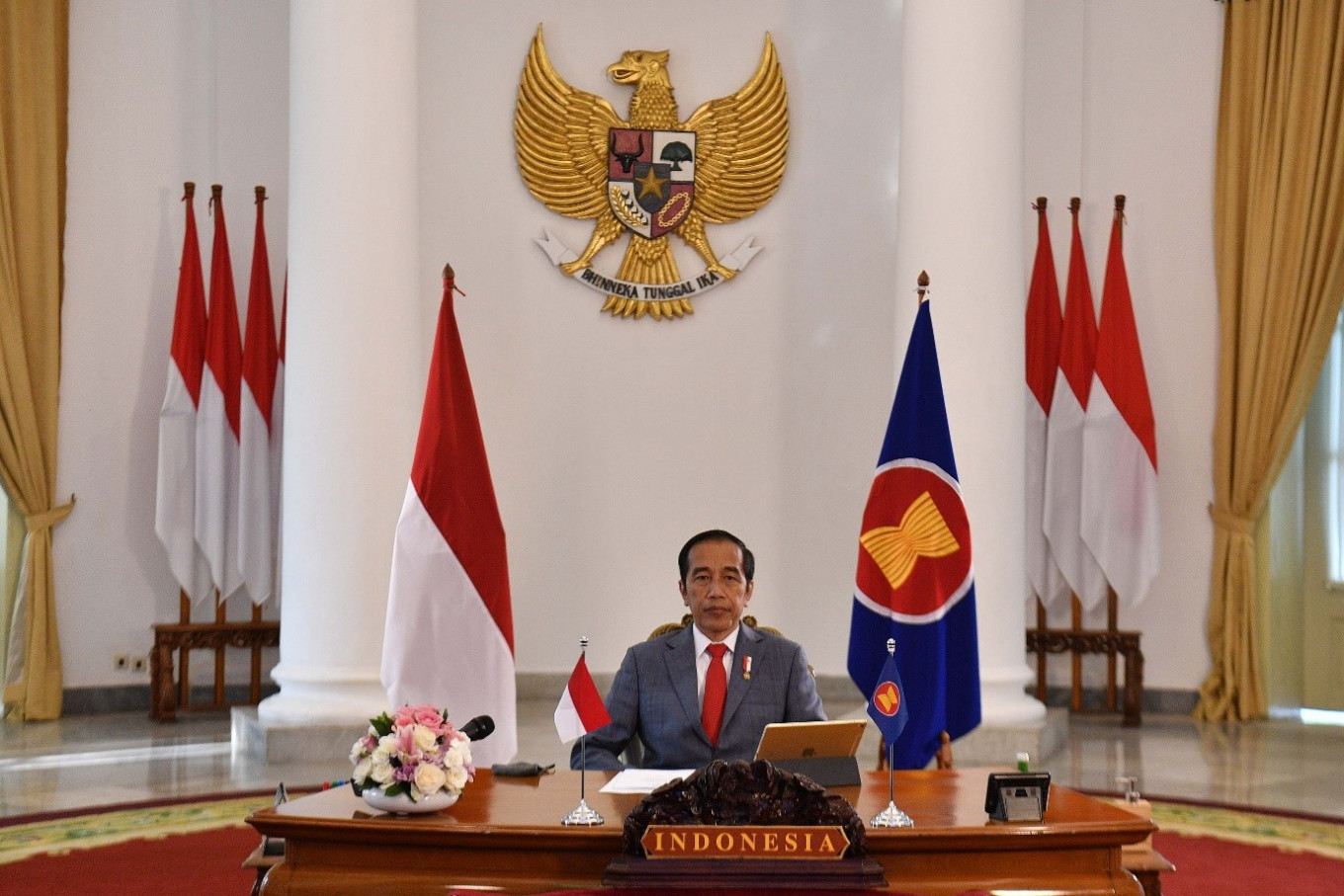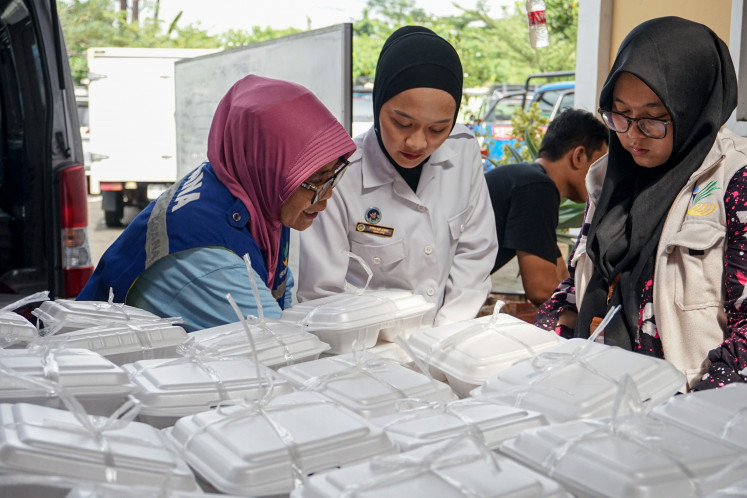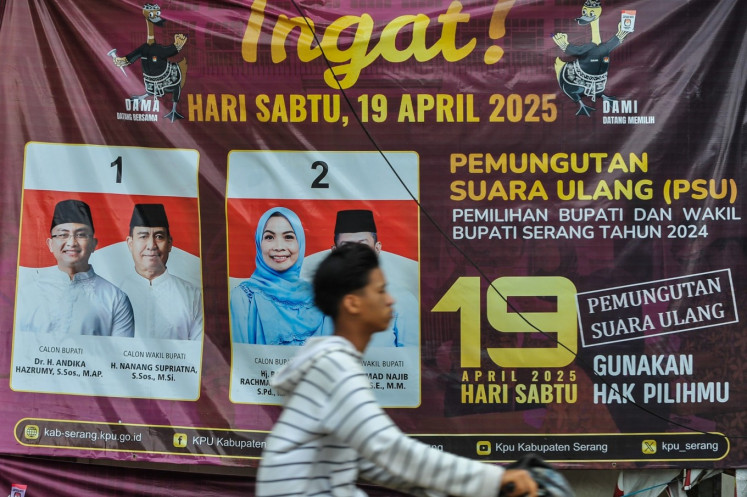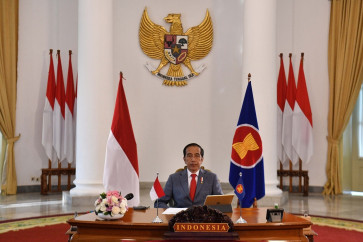Popular Reads
Top Results
Can't find what you're looking for?
View all search resultsPopular Reads
Top Results
Can't find what you're looking for?
View all search resultsAnalysis: Indonesia joining BRICS? Thanks, but no thanks
Change text size
Gift Premium Articles
to Anyone
 President Joko Widodo attended the 36th ASEAN Summit virtually at the Bogor Palace, West Java, Friday (6/26/2020). During the summit with Vietnam's host, President Joko Widodo stressed the importance of strengthening cooperation between ASEAN member countries in recovering the economic impact of the COVID-19 pandemic and proposing the need for ASEAN Travel Corridor arrangements.
(JP/ANTARA/Sigid Kurniawan)
President Joko Widodo attended the 36th ASEAN Summit virtually at the Bogor Palace, West Java, Friday (6/26/2020). During the summit with Vietnam's host, President Joko Widodo stressed the importance of strengthening cooperation between ASEAN member countries in recovering the economic impact of the COVID-19 pandemic and proposing the need for ASEAN Travel Corridor arrangements.
(JP/ANTARA/Sigid Kurniawan)
I
ndonesia made the point of attending the summit of the club of emerging economies known as BRICS in South Africa last week, but it politely turned down an invitation to join the group, which is expanding its membership to strengthen its hand in managing global economic affairs.
Given its size as the 16th largest economy in the world, Indonesia is more than qualified to join the group, which is known by the acronyms of its first five members: Brazil, Russia, India, China and South Africa. Founded in 2010, BRICS has been seeking to reform the global economic system still heavily dominated by the West.
Indonesia shares many of the objectives that BRICS has set out to achieve, including the establishment of a more just global economic order and moving away from relying too heavily on the United States dollar for international transactions. But it is in no rush to apply for membership, with President Joko “Jokowi” Widodo telling Indonesian reporters in Johannesburg that he had attended the summit to boost solidarity among the world’s developing nations. Indonesia, he added, had not formally expressed interests in joining.
Instead, Indonesia sees its national interests are best served by joining the Organization for Economic Cooperation and Development (OECD), the “rich men’s club” made up of 38 mostly Western countries. If successful in its bid, Indonesia will be the third Asian member after Japan and South Korea. Indonesia regained upper-middle income economic status this year, but the country has ambitions to make it to the world’s top-five largest economies before the middle of the century. The OECD, rather than BRICS, is the route to get there.
A record 60 countries attended the BRICS summit, many represented by their heads of government, including President Jokowi. At the end of the gathering, BRICS announced it has admitted six new members: Iran, Saudi Arabia, Egypt, Argentina, the United Arab Emirates and Ethiopia. It is not clear if they are going to change the name with the additional six new members.
The name was first coined in 2001 by Goldman Sachs in describing the four most promising emerging markets: Brazil, Russia, India and China. Indonesia was not in its radar screen as it was then still reeling from the Asian financial crisis, and only gained the status of emerging economy toward the second half of the decade.
Leaders of these four countries turned the Goldman Sach’s economic concept into a political entity by convening a summit in 2009. In their second in 2010, they invited South Africa to join, more to give it an African representation. BRIC became BRICS. If they had gone by economic size, it should have chosen the larger Indonesia, although Jakarta would likely have turned down the invitation. In the years since then, BRICS has sent its representatives to encourage Indonesia to join or participate in its summit. Indonesia has politely turned them down.
Your Opinion Matters
Share your experiences, suggestions, and any issues you've encountered on The Jakarta Post. We're here to listen.
Thank you
Thank you for sharing your thoughts. We appreciate your feedback.

















